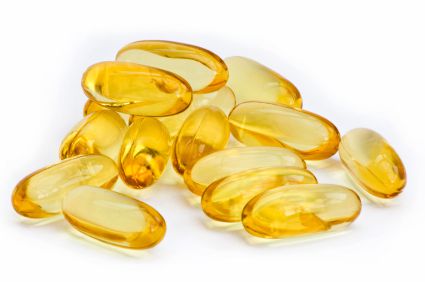Omega 3 fish oil benefits are seemingly endless. Omega-3 fatty acids are mandatory for growth and development. If you do not take sufficient quantities of omega-3 fatty acids, you stand the risk of suffering from a range of health conditions.
Since the human body is incapable of producing this nutrient, one must eat fish or ingest supplements to ensure he or she is receiving the necessary omega 3 fish oil benefits.
Different studies have shown that omega-3 fish oil benefits include the potential to lower triglyceride levels and blood pressure. People suffering from heart conditions, cancer, asthma, bowel diseases, psoriasis, ulcerative colitis and arthritis also claim to have benefited from the consumption of this one of a kind nutrient.
Fresh Fish for Omega 3
In the olden days, people could meet their daily requirements of omega 3 in sufficient quantity from eating a variety of wild game and fish. The dietary availability of omega 3 fatty acids has declined in the USA today to barely 20% of what it used to be a century ago.
Also, farmed fish that’s available in the market today has much higher levels of toxic chemicals and pollutants than wild fish. Each underwater cage houses upto 50,000 fish. The water is contaminated by their accumulated wastes. Only by administering drugs, hormones and antibiotics can they even be kept alive!
Tinned Fish for Omega 3
Canned tuna and salmon from a tin used to be a recommended suggestion for those who don’t prefer sea food, as a safe and effective alternative that’s rich in omega 3 fats. Unfortunately, while natural fish is a good source, it also increasingly contains pollutants and heavy metals like mercury.
Tinned salmon is also farmed, and can be harmful to your health. The Chicago Tribune in a recent investigation found that “US tuna companies often package and sell a high-mercury tuna species as canned light tuna”.
This makes pharmaceutical sources of fish oil more attractive as health supplements, as these sources are purified and most contaminants are filtered out effectively.

Fish Oil for your daily Omega 3 needs
Fish oil sources of omega 3 have some advantages over plant sources. Fish oil is a better source of long chain omega 3 fatty acids like DHA (docosahexaenoic acid) and EPA (eicosapentaneoic acid), both of which are necessary for healthy functioning and development. No plant source provides significant long-chain fatty acids.
But while fish oil is the best source of critical long-chain omega fatty acids like DHA and EPA, it is still the most likely to be contaminated with PCBs, DDT and dioxin, along with heavy metals like mercury.
An option that allows you to enjoy the benefits of fish oil, without the risks, is to take fish oil capsules. 3 grams a day of fish oil provides 1 gram of DHA and EPA, which is all you need.
Several brands use oil from fish caught in the cleanest and coldest waters, far from commercial shipping lines and industrialized countries where there is the highest risk of water contamination by wastes. Making fish oil capsules even safer is the practice of molecular distillation, a process that removes any mercury or other heavy metals, dioxins, PCBs and other contaminants.
If you’re keen to learn more about the Omega 3 Fish Oil I personally take daily, please check out this site today.
Omega-3 Fish Oil Benefits – The Long List
To understand how omega 3 fish oil benefits us, let’s first learn about the different types of fatty acids that constitute omega-3.
Fish oils containing eicosapentaenoic acid (EPA) and docosahexaenoic acid (DHA) and plant sources that have alpha-linolenic acid (ALA) constitute omega-3 fatty acids that are necessary for the proper functioning of the human body. Though some plants sources have the same advantages associated with fish oil, less is known about them. There is no single standard dose for omega-3.
However the American Heart Association recommends a gram of EPA and DHA each day to those suffering from any heart disease. Higher doses like two grams or four grams a day is prescribed to those who must lower their triglyceride levels. Always consult a doctor before taking any fish oil supplement to ensure that you are consuming the right dose and stand no risk of adverse side effects.

Ideal sources that can help you get omega 3 fish oil benefits include cod liver, cold water fish like tuna, mackerel, sardines and salmon, soybeans, tofu, flaxseed oil, walnuts and canola oil.
According to the American Heart Association it is best to take in omega-3 fatty acids from these sources. However if one fails to eat fish at least twice a week, omega-3 supplements should be sought. You can also improve the proportion of omega-3 fatty acids in the bloodstream by consuming fewer foods that have omega-6 fatty acids – namely meat and eggs.
While discussing omega 3 fish oil benefits, you must also be told that high doses of the nutrient is likely to thin your blood and make you bleed easily so refrain from picking up a supplement over the counter even though they are easily available.
To ensure omega-3 only benefits you and does not harm you in any way, consult a doctor before consuming excessive amounts of the same.
What Omega 3 Fish Oil Dosage Is Right For You?
Your ideal omega 3 fish oil dosage is dependent on several factors.
Omega-3 deficiency is a common problem among many people. There are many supplements that are available at nutrition and drug stores but the label on your bottle of fish oil supplement does not necessarily inform you about the omega-3 fatty acids that it contains. Usually 1000 mg of regular fish oil contains only 300 mg omega-3 which is the bare minimum you need to avoid deficiencies of the same nutrients.
An adequate intake of fish oil requires three to six capsules to be ingested every day. Pharmaceutical grade fish oil is the other alternative you can avail of as they offer 1000 mg omega-3 in each pill. Basically, the omega 3 fish oil dosage in two pharmaceutical pills is the same as six regular capsules.
In order to avoid diseases, you must ingest 500 mg of omega-3 fatty acids each day. If you consume 1000 mg of the same, you will be able to maintain great health. However, if you are suffering from any omega-3 deficiency related conditions, you must aim to ingest at least 2000 mg of omega-3 fatty acids daily.

Let’s take a closer look at the recommended daily omega 3 fish oil dosage for different health conditions.
- Heart disease – 1000 mg omega-3
- High triglyceride – 2000 to 4000 mg omega-3
- Arthritis – 2000 mg omega-3
- Depression – 1000 mg omega-3
- Skin disorders – 1000 mg omega-3
- Asthma – 2000 mg omega-3
- Diabetes – 2000 mg omega-3
- Blood pressure – 2000 mg omega-3
These recommendations are those made by American Heart Association, American Psychiatric Association and National Eye Institute. However, the omega 3 fish oil dosage for each individual is likely to vary so one must consult a doctor before taking any fish oil supplements.
Several factors are taken into account before determining the ideal dose for an individual. These factors include diet, age, size, health conditions and the prescription of other drugs. A doctor considers all these factors before prescribing a particular fish oil dosage to you so refrain from picking up medications over the counter without consulting a medical professional first.
However, if in case you cannot reach a doctor immediately but must begin supplementation soon, start with a base amount of three to four one gram softgels per day. It is not advisable that you keep increasing your omega 3 fish oil dosage if desired results do not begin to show.
Switch between a lower dose and a higher one instead of continuously increasing the number of softgels you take every day. Ideally this should only be a makeshift measure till you can seek some advice from a medical professional. Make an appointment at the earliest so you can avoid all side effects.
For more tips on choosing the right omega 3 fish oil that suits your needs, check out this free special report – click here.
What You Need To Know About Eskimo 3 Fish Oil
Eskimo 3 fish oil is an omega 3 fish oil supplement that offers numerous health benefits.
Its fish oil content is derived from non-endangered species of fish which are captured from the chilly northern regions of the Pacific Ocean. Eskimo 3 is an excellent source of natural omega three fatty acids.
It goes through a special production process which enables it to preserve essential omega 3 ingredients and oil. This helps to ensure that the fish oil is pure and free from chemicals, pollutants and toxins.
Presented below are some of the benefits of taking Eskimo three fish oil.
This fish oil supplement is extremely beneficial for enhancing general wellness. It boosts the functioning of your cardiovascular system, helps to improve vision as well as decrease your high cholesterol levels.
Additionally, taking this fish oil supplement helps to keep the skin healthy as well as boost blood circulation within the body. It is also beneficial to the joints as it helps to improve flexibility.
Eskimo 3 fish oil also possess anti-inflammatory properties, thus it is beneficial for treating arthritis. It boosts the functioning of the kidneys and prevents chronic pulmonary ailments. It is beneficial for improving cognitive functions as well as memory. Taking this fish oil supplement regularly will help you remain healthy and fit for a very long time.
Eskimo 3 fish oil contains a balanced proportion of the 2 important kinds of omega III fatty acids – docosahexaenoic acid (DHA) and eicosapentaenoic acid (EPA). This excellent natural balance of DHA and EPA prevents this fish oil supplement from becoming rancid. DHA and EPA aid prevent clotting of blood, promotes the proper functioning of the heart and helps reduce atherosclerosis.

Another benefit of this fish oil is that it leaves no fishy aftertaste. It does not contain toxins, mercury and other heavy metals. In addition, it is devoid of gluten, wheat, corn, yeast, sugar, salt and dairy products.
It does contain synthetic coloring and flavoring chemicals. Glycerin, natural lime and rosemary flavors, soy lecithin, gelatin and anti-oxidants are some of the beneficial ingredients it contains.
Eskimo 3 fish oil is available in liquid form or softgel capsule. It is non-toxic, non addictive and has no impurities. It is a fantastic fish oil supplement that is effective and safe to use. As you consider this omega three fish oil supplement, bear in mind that it should be taken with cold things and hot. This is because heat can remove all of its beneficial properties.
You should consider adding Eskimo three fish oil to your everyday diet, due to its numerous health benefits. Learn more about choosing the best brand of fish oil for your daily supplements – read this free report now.
The Benefits of Omega Fish Oil Supplements
Fish oil has several benefits because it contains protein and vitamins which complete your nutritional needs. Several researchers have verified the benefits of omega fish oil and healthcare professionals recommend this supplement for improved health and disease prevention.
Fish oil is such an excellent supplement because it contains omega 3 fatty acids. This article will highlight the benefits of taking omega 3 fish oil supplements. But always keep in mind the important point of having to pick and choose the best type of fish oil to enjoy the highest benefits over the longest period of time.
Making the wrong choice may not only reduce the impact of taking supplements, but may actually endanger your health.
Omega 3 Health Benefits
Studies as well as clinical trials have established that Omega III fatty acids are helpful to individuals with heart problems. These fatty acids can help to lower blood triglyceride levels, reduce blood pressure and decrease the risk of a cardiac arrest. Aside from that, it has positive effect on brain function as well as memory and can be highly beneficial particularly to growing children.
Omega fish oil supplements are available in pills form. Taking these supplements can help to boost your immune system as well as decrease your risk of catching a cold, flu and cough. If you are looking to maintain your health holistically, then you should consider including these dietary supplements in your routine diet plan, as more and more investigations are confirming its benefits.
Skin Benefits of Omega fish oil supplements
The omega 3 fatty acids, contained in fish oil, play an important part in maintaining skin health. Fish oil also contains EPA, which helps to regulate oil production and promote hydration, thus preventing acne formation. It has been observed that using Omega 3 fish oil supplements on a regular basis can help to delay the onset of aging skin. Omega 3 is an antioxidant as well as anti inflammatory fatty acid. Aside from protecting your skin from the harmful effects of the sun, it also helps to repair it.
Fish oil Benefits to Pregnant Ladies
If you are pregnant, taking fish oil can reduce your risk of miscarriage and premature birth. In addition, it has been established that using fish oil during pregnancy can help in the formation and development of the unborn child’s brain and eyes. Consuming omega fish oil supplements during pregnancy aids in the general development of the baby while enhancing the holistic well being of the mother.
But be careful not take fish liver oil for example cod liver oil during pregnancy because it contains high amounts of vitamin A. If you are pregnant, you should speak with your healthcare professional before adding fish liver oil in your diet.
Now you know the benefits of omega fish oil supplements. Try and include them in your diet for a healthier, better and happier you. To help make the choice of best fish oil supplement easier for you, we have researched the available brands and options before compiling the most important decision-making factors into a short report which you can access and study – for free. Just click here to begin.





